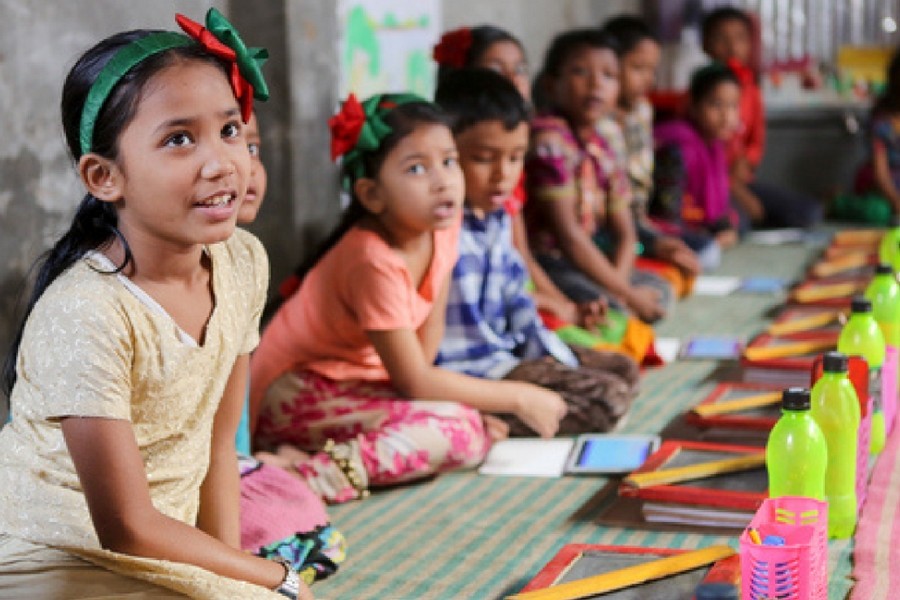The country's early childhood education, considered the pillar of future success of children, is lagging far behind the developed countries, a local consulting firm has concluded in a policy brief.
It suggests proper reading and problem-solving skills are crucial for children to grow for their future life.
“Within the first few years of being introduced to school, a child must acquire these skills. Otherwise, they will grow up with learning deficiencies, and acquiring the foundational skills will be more difficult for them,” reads the brief prepared by Innovision Consulting Private Limited.
Accordingly, it insists, more emphasis on primary and secondary education is vital for nurturing the students’ talents and prepare them for higher education.
“Emphasis is also needed on teacher-parent relationships and discouraging teachers' from engaging in immoral activities,” the brief adds.
It was prepared on the basis of findings of a webinar on ‘Building on our success for equitable education in Bangladesh’. Innovision organised the virtual discussion in collaboration with NextGenEdu, The Financial Express, and Department of Economics, North South University on June 16.
The panelists there recommended that the government should ensure that children develop foundational skills required for their survival in the ever-changing world.
A common discipline for all students up to secondary school certificate level was also suggested in order to ensure equal distribution of knowledge.
The experts expressed concern that digital divide between the students of different backgrounds has been exposed and is widening during the pandemic.
Lack of devices, interruptions in electric connections, unavailability of internet connections in several districts is reportedly hindering the process of online education, according to the policy brief.
The experts called for urgent actions to reduce the digital divide in order to ensure all students' equal access to education in the coming days.
Also, they pointed out, innovative solutions such as assignments could help manage the challenges of the digital divide.
“Quality of education remains a concern,” says the brief, adding that the pandemic has threatened to reverse the earlier achievements while 21st century challenges are looming over the country.
Bangladesh’s current education involves 40 million students, 200,000 institutions, and over a million teachers – a sector which makes it one of the largest ones in the world.
The brief mentioned that the government is trying to transform madrasa education with the help of the Madrasa Education Board. Some 2.5 million students are studying under this board.
The webinar was organised as part of an integrated campaign styled “Bangladesh Miracle.” Partners of the event include Windmill advertising, Sarabangla.net, Colours 101.6 FM, North South University’s YEF (Young Economist Forum), Printagraphy, CARE Bangladesh, ICCO Bangladesh, GAIN Bangladesh, WaterAid Bangladesh, Simprints Technology, BIID, and Pathao. mPower is the ICT partner.
The panelists were Md. Aminul Islam Khan, Secretary of Technical and Madrasah Education Division, the Ministry of Education; Professor Syed Md. Golam Faruk, DG, Directorate of Secondary and Higher Education, Professor Asadul Islam, Department of Economics, Monash University; Dr. Ananya Raihan, Chief Executive Officer, iSocial; Dr. Nazlee Siddiqui, Department of Management, North South University and Shahidul Islam, former education advisor for Bangladesh and Afghanistan, USAID.


